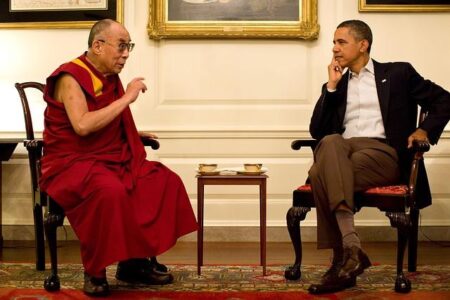Japan and US defence chiefs recently met to tackle China’s rising military activities, underscoring the urgent need to boost regional security. Meanwhile, Mexico is reexamining its tariff policies in response to mounting trade tensions, reports the South China Morning Post
Browsing: China
Fistfights broke out between Chinese officials and staff from PDD, the owner of Temu, during a tense audit, Bloomberg reports. This explosive confrontation highlights the rising tensions amid growing regulatory pressure on China’s e-commerce giants
China’s $180 billion investment in clean technology is igniting a green revolution across the Global South, driving rapid growth in sustainable infrastructure and dramatically cutting emissions, experts reveal. This groundbreaking shift is redefining the future of global climate cooperation
China’s growing economic might is transforming the global marketplace, igniting worries about trade imbalances, fragile supply chains, and strategic control that are fueling rising tensions worldwide
Congress is preparing to roll out bold new restrictions aimed at China in a sweeping defense bill, set to boost national security and clamp down on Chinese control over critical technology and supply chains, according to AP News
Nvidia’s recent lobbying efforts in China have hit a major milestone, securing crucial regulatory approvals that boost its market presence like never before. However, experts caution that persistent geopolitical tensions and supply chain hurdles may temper the long-term benefits of these achievements
China’s deflationary challenges continue to loom large, even as consumer inflation soars to a 21-month high, Reuters reports. Service prices are on the rise, yet factory-gate and wholesale goods stubbornly lag behind, highlighting the intricate economic obstacles that lie ahead
China is preparing to restrict access to Nvidia’s state-of-the-art H200 AI chips, even after recent export approvals were granted under the Trump administration, Reuters reports. This development underscores the ongoing tensions in US-China technology relations
China has intensified its standoff with Japan following reports of a dramatic radar lock incident between their naval vessels. Tensions in the East China Sea are soaring, driven by persistent territorial disputes that show no signs of easing
Russia is gearing up to ramp up its LPG exports to China by a striking 40% in 2026, reveals consultancy Rystad Energy. This significant surge underscores deepening energy ties as Russia taps into new markets amid shifting global demand
In 2025, China skyrocketed to the forefront of climate innovation, leaving the U.S. behind with daring clean energy investments and revolutionary policy shifts-reshaping the global dialogue on climate action, NPR reports
German Foreign Minister has urged China to tackle supply chain uncertainties head-on, emphasizing the critical need for stable and dependable trade relations. This call highlights growing concerns over possible disruptions to the global economy, Reuters reports
Hong Kong is enveloped in deep sorrow, mourning the heartbreaking Tai Po fire disaster. Amid the overwhelming grief, passionate cries for justice are being stifled, exposing Beijing’s tightening grip on the city’s freedoms
China’s first reusable rocket might have exploded during a test flight, yet its onboard Ethernet network remained fully operational amid the chaos-showcasing the remarkable resilience of its communication systems, reports The Register
Chinese fighters locked their radar onto SDF jets amid rising regional tensions, Japan’s defense ministry revealed. This daring action highlights China’s increasing military boldness as it asserts its presence near airspace controlled by Japan
China’s Nvidia, a leading AI chipmaker, has soared an incredible 425% amid a booming surge in demand for artificial intelligence technology. Experts say this explosive growth is only the beginning, signaling massive opportunities on the horizon for the AI industry
China’s semiconductor titan Moore Threads soared more than 400% in its trading debut following a staggering $1.1 billion IPO, marking a groundbreaking moment amid rising global chip industry tensions, CNBC reports
China and Japan boats clashed near the disputed islands in the East China Sea, escalating tensions in their long-standing territorial dispute. Both nations have increased patrols, raising concerns about a potential conflict in this strategically crucial region
California and Chinese businesses are enthusiastically joining forces to ignite trade and fuel groundbreaking innovation. This vibrant partnership aims to strengthen economic ties amid the shifting landscape of global markets, reports China Daily
Taiwan has made a daring move by banning one of China’s most popular social media apps, citing urgent national security threats. This bold decision intensifies the already strained cross-strait relations, fueling ongoing digital conflicts and geopolitical rivalries, reports the Financial Times




















